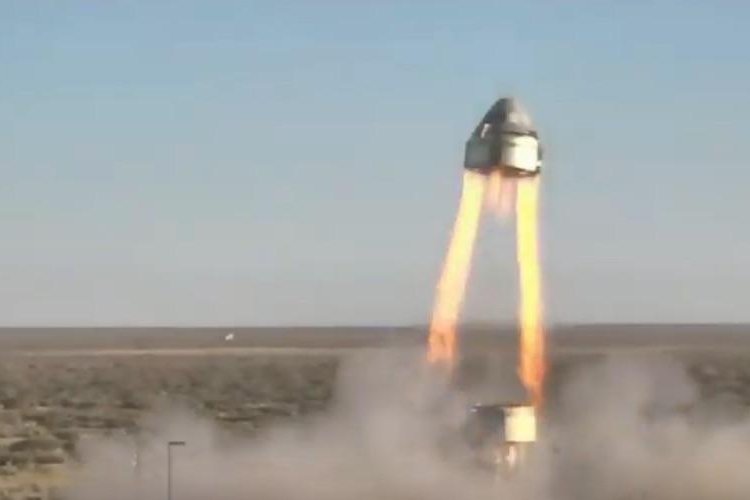1 of 2 | Boeing's CST-100 capsule fires its engines during a successful test Monday at White Sands Missile Range in New Mexico. Photo courtesy of NASA
Nov. 4 (UPI) -- Boeing successfully tested its abort system for the newest astronaut capsule, the CST-100 Starliner, Monday morning at White Sands Missile Range in New Mexico.
The test advances NASA's efforts to bring back human spaceflight for the first time since the space shuttle program ended in 2011. Since the, the United States has relied on purchasing seats on Russian Soyuz capsules to reach the International Space Station.
Starliner is now set for an unmanned test flight to the International Space Station on Dec. 17.
Two of three main parachutes opened and slowed the capsule, with airbags easing the landing on the desert surface.
Boeing said in a statement after the test that "It's too early to determine why all three main parachutes did not deploy. However, having two of three deploy successfully is acceptable for the test parameters and crew safety."
The company said it didn't expect any impact to its schedule because of the parachute issue.
The abort test saw the capsule accelerate to about 650 mph in five seconds, verifying that Starliner's engines and thrusters are capable of firing in the event of an emergency while astronauts are sitting on the launch pad or ascending. The test was designed to carry the capsule a mile high and a mile north of the test site.
"We have Starliner taking flight for the very first time," a commentator on NASA Live TV said.
"It's been a long time since we've launched out of the United States," NASA astronaut Mike Fincke said after the test. He's one of three astronauts designated to fly on Starliner with Nicole Mann and Chris Ferguson.
Fincke has flown twice on Russian Soyuz capsules. He said the space program appreciates Russia's help getting to space for many years, but "It's time to have more options."
The test took place at 9:15 a.m. EST after a slight delay. Boeing then worked on recovering the capsule and analyzed data from the test.
Starliner is part of NASA's Commercial Crew Program to develop flights to the space station through a public-private partnership. Boeing is basically competing with SpaceX, which has been testing its Crew Dragon capsule.















